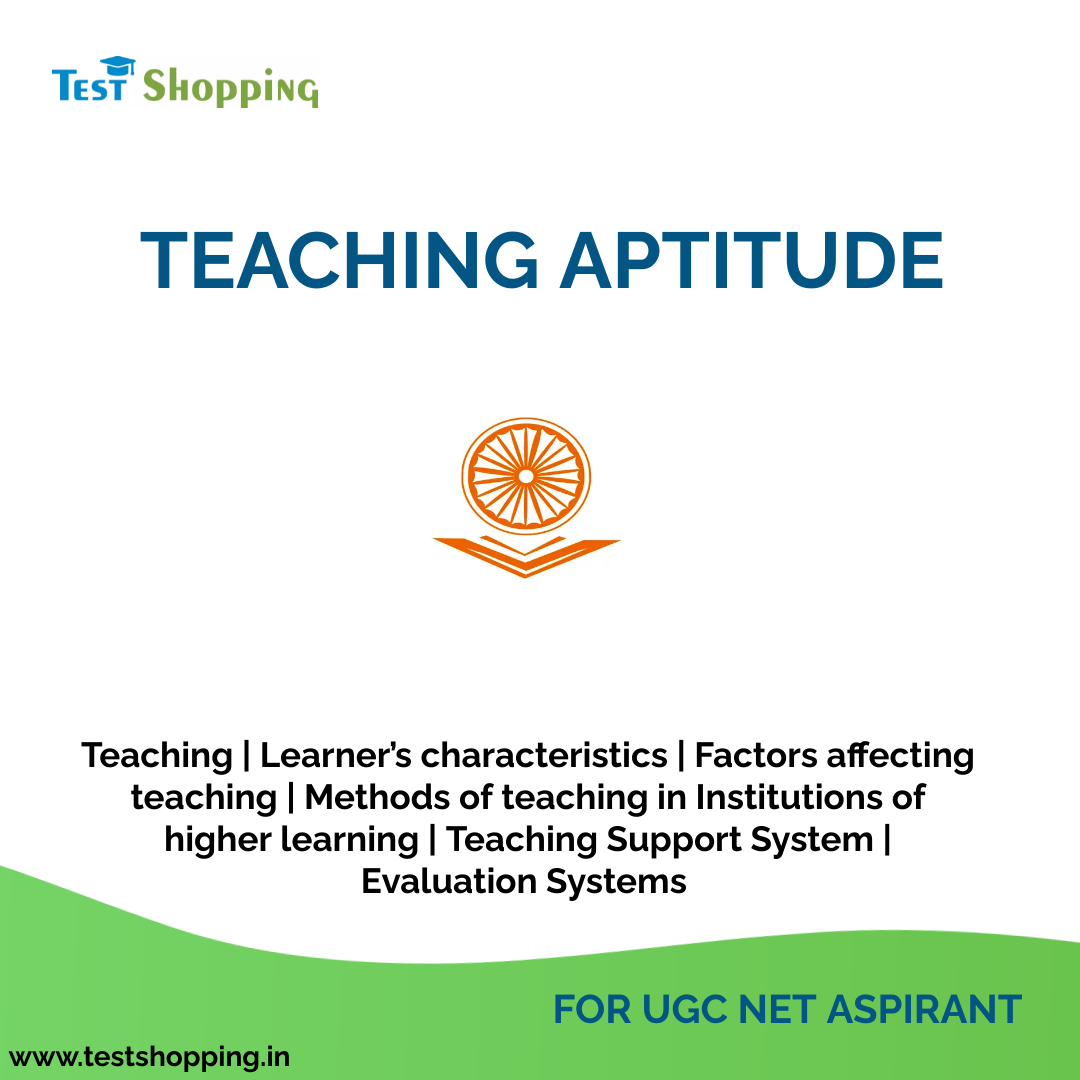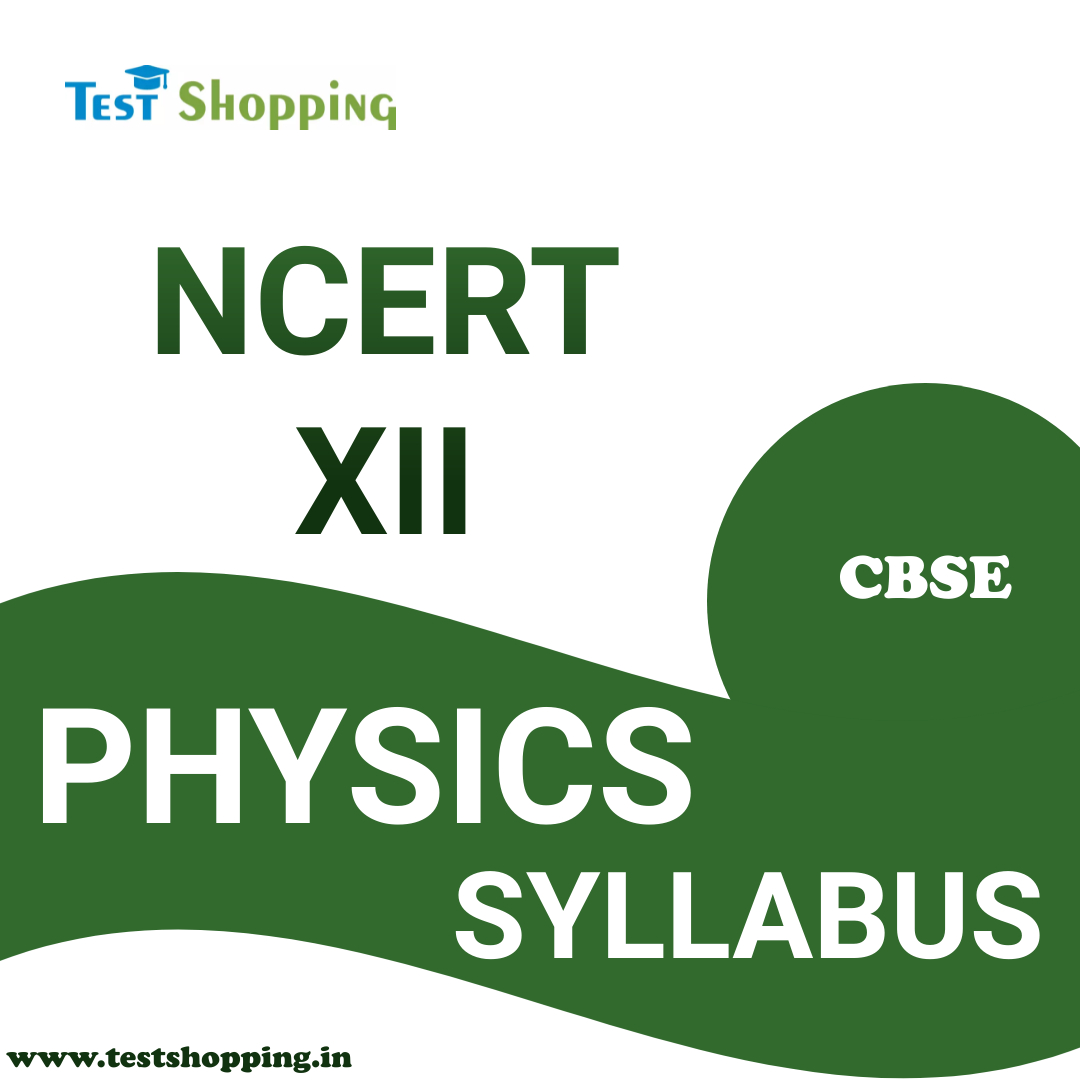
UGC NET – Paper 1 Teaching Aptitude
INTRODUCTION:
Teaching is a process in which one individual teach another individual. It is a process which usually takes place in classroom situations. The process of teaching is a kind of transfer or shearing of Instruction or delivering particular skills or knowledge from one person to another. The person who transfers his/her knowledge is known as teacher and the one who receives it is known as student. Education is the process of facilitating learning, or the acquisition of knowledge, skills, values, beliefs, and habits.
Education creates communication through teaching languages to create understanding and removing any disputes among nations. The national standards of education as follows, Excellent teachers, Successful school administration, Developed curriculum, Social participation, Value of loyalty and Learning sources.
OBJECTIVES OF TEACHING:
- To modify the learner’s behavior and conduct
- To change the attitude of learners
- To provide opportunities for learners to develop understanding and general intellectual skills
- To improve learning skills of learners
- To give some experience of life
- To develop thinking power of learners
- Acquisition of knowledge
- Formation of belief
- To provide a social and efficient member to the society
- To stimulate curiosity to learners to discover knowledge
NATURE AND CHARACTERISTICS OF TEACHING:
- Teaching is a process that facilitate learning
- Teaching is democratic
- Teaching is dynamic and social process
- Teaching is an interactive process
- Teaching is a bipolar process
- Teaching is both art and science
- Teaching is measurable process
- Teaching is both formal and informal process
- Teaching is diagnostic and remedial process
- Teaching is universe of learning
- Teaching is a process of development and learning.
- Teaching is face to face encounter
- Teaching is observable and modifiable process
- Teaching is both conscious and an unconscious process.
- Teaching is from memory level to reflective level.
- Teaching is diverse in nature
- Teaching takes place at multiple areas without constant
- Teaching must be planned
- Teaching needs effective reciprocal communication
- Teaching is a professional activity
- Teaching is dependent process
- Teaching is based on democratic ideas
- Teaching is based on co-operation between teacher and learner
- Teaching is progressive and it produces emotional stability
- Teaching creates self-motivation for learners
- Teaching is a continues process and it should be strategic
- Teaching process showing concern and respect for learners
- Teaching provide ability to engage with learner as their level of understanding
- Teaching encouraging independence to learner
- Teaching ability to learn, understand and develop critical thinking abilities
- Teaching needs planning
- Teaching is co-operative in nature
- Teaching essentially required emotional stability and security
- Teaching creates positive self-concept to learners
- Teaching gives highest quality feedback for learner’s work
- It should be according to mental level of learners.
- Effective teaching is cooperative and suggestive
CHARACTERISTICS OF TEACHER:
- Good teacher should have clear instructional goals
- Teacher must have the passion to teach and learn.
- Teacher must consult, analyze, explore, evaluate and learn to teach.
- Good teacher should have integration with other subject area
- Improve the physical standard of the student is the primary duty of the teacher.
- Teacher should have good observance of professional ethics
- Teacher must be a good observant and listener.
- Teachers must have positive orientation towards student’s achievements
- Acknowledging mistakes
- Teacher helps to solve student’s problem
- Teacher should give regular feedback
- Teacher must be prepared and well planned
- Teacher should have individualized instruction
- Teachers should resourceful and participative
- Teacher must teach through active learning methods.
- Teacher must develop yourself with all methods of teaching.
- A good teacher is not a senior person
- Teacher must have content mastery and communication competency
- Teacher must be a self-confident, humble, kind, show self-respect, enthusiastic and cooperative.
- Teachers should have high expectation for all learners
- Teacher must engage your learners and have an eye-contact.
- Make the class environment interactive and democratic.
- Teacher motivates and allows your learners to make mistakes.
- Teachers should give real life example while teaching.
- Teacher must be knowledgeable, developed and well- cultured.
- Have high expectations and provide warm environment in class.
- Teacher must have skills of using classroom management styles.
FACTORS AFFECTING TEACHING:
- Educational qualification of teacher
- Communication skills of teacher
- Subject knowledge of teacher
- Technique of teaching methods
- Experience of teacher
- Class room environment
- Socio Economic status
- Administrative policies of management
- Learner’s behavior
- Teachers – Learners relationship
- Personal and Social environment factors
- Faculty – students ration
- Examination stress
- Self-confidence and personality of teacher
LEVELS OF TEACHING:
Teaching is a process of an interaction takes place between teacher and learners. Here the main aim is to bring change in the behavior of the student. Teachers teach students at three levels. These three levels are, Memory Level of Teaching , Understanding Level of Teaching and Reflective Level of Teaching.
Memory Level of Teaching:
Teaching at the memory level represents the first and involvement of the least thoughtful behavior. In this level thinking ability does not work any role. The role of teacher is prominent and that of the learner is secondary. The learner tries to mug up these facts with the least involvement of his thinking and reasoning power without any care of understanding of their meaning and application.
The study material is organized and pre-planned. The teacher presents the study material in a sequential order. The teaching material should be meaningful and purposeful. The teaching material should have a definite structure and it should be simple to complex.
The subject matter should be presented in a systematic and organized way.
Memory level teaching lacks insight. Psychologically, it is cognitive level teaching. The main objectives of memory level of teaching are Imparting knowledge and information to the learner. Knowledge or information gained by the learner is factual in nature. It is acquired through memorization or rote learning.
It is the initial stage of teaching.
Memory level of teaching based on Teacher – Centered.
Minimum level of motivation present in this memory level.
In memory level signal learning, chain learning and stimulus response learning are emphasized.
There must be continues evaluation to measure and improve the memory power of learner. And also continues reinforcement should be provided during the course of instruction.
Cognitive memory level Learning: Perception, Retention, Recall and Recognition.
Herbart is the main exponent of memory level of teaching. He described the following steps for the presenting the model of memory level of teaching as Focus, Syntax, Social System, Support System.
Understanding Level of Teaching:
The model of understanding levels teaching was indoctrinated by Morrison. It is named as Morrison teaching model. Understanding something is to perceive the meaning, grasp the idea and comprehend the meaning.
In the field of Education and Psychology, the meaning of ‘understanding ‘can be classified as use of facts, relationship and generalized insight.
The main objectives of understanding level are acquisition of required factual information or body of facts, to see relationship between acquired facts, to identify the similarities and dissimilarities between the acquired facts and to seek generalization out of the specific facts.
The teaching at the understanding level is of a higher quality than the one at the memory level. It is more useful and thoughtful from the point of view of mental capabilities.
In the understanding level role of the teacher is more active.
At this level, no cramming is encouraged. The new knowledge acquired at this level is related to the earlier knowledge gained.
Both learner and teacher can participate in developing the lesson while teaching occurs at the understanding level. Both are in active mode. In this level learners should achieve the mastery of the concept.
Reflective Level of Teaching:
Reflective level of teaching is considered to be the highest level at which teaching is carried out. This level is also known as introspective level. Reflecting on something means giving careful thought to something over a period of time. It also means thinking deeply about something.
The main objective of this level is to make use of the learned facts and acquired understanding or insight for learning reflectively, to help the learner build up an enlarged store of the tested insight s of generalized character and to enhance the learner’s ability to develop and solve problems at their own initiative.
It is highly thoughtful and useful. A learner can attain this level only after going through memory level and understanding level. Teaching at the reflective level enables the learners to solve the real problems of life.
At this level, the student is made to face a real problematic situation. The student by understanding the situation and using his critical abilities succeeds in solving the problem.
The role of the teacher in this level of teaching is democratic. He does not force knowledge on the students but develops in their talents and capabilities. The role of the learner is quite active.
Reflective level of teaching is that which is problem-centered and the student is busy in original imagination.
COGNITIVE DEVELOPMENT LEVELS:
Cognitive Level is the creation of thought process including remembering, problem solving and decision making from childhood through adolescence to adulthood. There are different theoretical approaches to understand learning; cognitive development and moral development are
- Piaget Theory of cognitive development
- Socio culture theory of learning and development
- Kohlberg’s theory of moral development.
LEARNING:
Learning is acquiring new or modifying existing knowledge, behaviors, skills, values, or preferences and may involve synthesizing different types of information. The ability to learn is possessed by humans, animals and some machines. Progress over time tends to follow learning curves. Human learning may occur as part of education, personal development, schooling, or training. It may be goal-oriented and may be aided by motivation. Learning is a step-by-step process in which an individual experiences permanent, lasting changes in knowledge, behaviors, or ways of processing the world. Learning occurs when we are able to gain a mental or physical grasp of the subject, make sense of a subject, event or feeling by interpreting it into our own words or actions, and use our newly acquired ability or knowledge in conjunction with skills and understanding we already possess.
Characteristics of Adult learning:
- Adult learning is internally Motivated and self-directed.
- Adults are goal oriented
- Adults are relevancy oriented
- Adults are practical minded personality
- Adults need to be respected
- Adults brings life experience and knowledge to learning experience
- Adult learner uses hands-on problem-solving approach to learning
- Adult learner based on tasks and problem centered
- Adult learner wants to apply a new knowledge and skills immediately
- Adult learner uses hands-on problem-solving approach to learning
- Adult learner needs to take responsibility
- Adult learner learns from their mistakes
- Adult learner learns better in an informal environment
- Adult learner has different life style
- Adult learner prefers verity of teaching methods
- Adult learner is internally Motivated and self-directed.
- Adult learner like to speak, participate and contribute in the learning process
Characteristics of Adolescent learning:
- Adolescent Learner motivated by external.
- Adolescent Learner use specific concrete thought
- Adolescent Learner expects what they are learning to be useful in the future.
- Adolescent Learner should obey for rewards and punishment
- Adolescent Learning based on subject oriented
- Adolescent Learning based on rote learning
- Seeking approval of peers and others with attention-getting behaviors.
- They Restlessness and fatigue due to hormonal changes.
- A need for physical activity because of increased energy
- They have an ability to be self-reflective.
- High achievement when challenged and engaged.
- Interest in interacting with peers during learning activities.
- Being capable of and interested in participating in democracy
- An understanding of the complexity of moral issues
- Relying on parents and important adults for advice, but wanting to make their own decisions.
- Judging others quickly, but acknowledging one’s own faults slowly.

admin
Admin roleCategories
Popular posts

CBSE PHYSICS SYLLABUS
2023 Apr 14
Kerala PSC Assistant Professor Engineering ...
2023 Jan 10
Magnetic Field Due to Toroid
2023 Jul 09